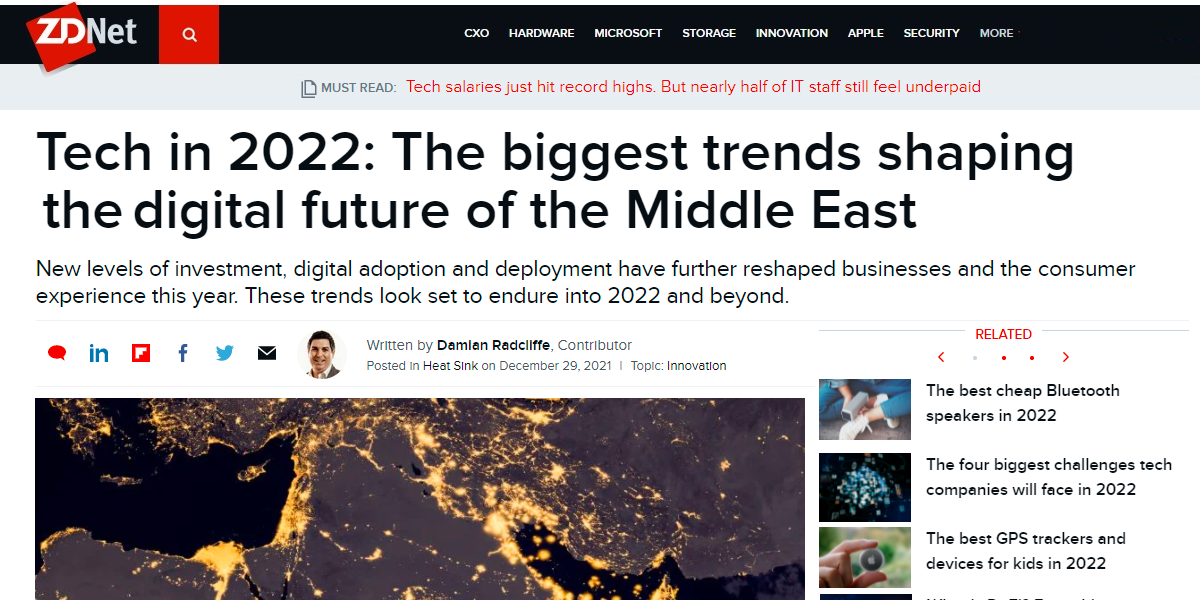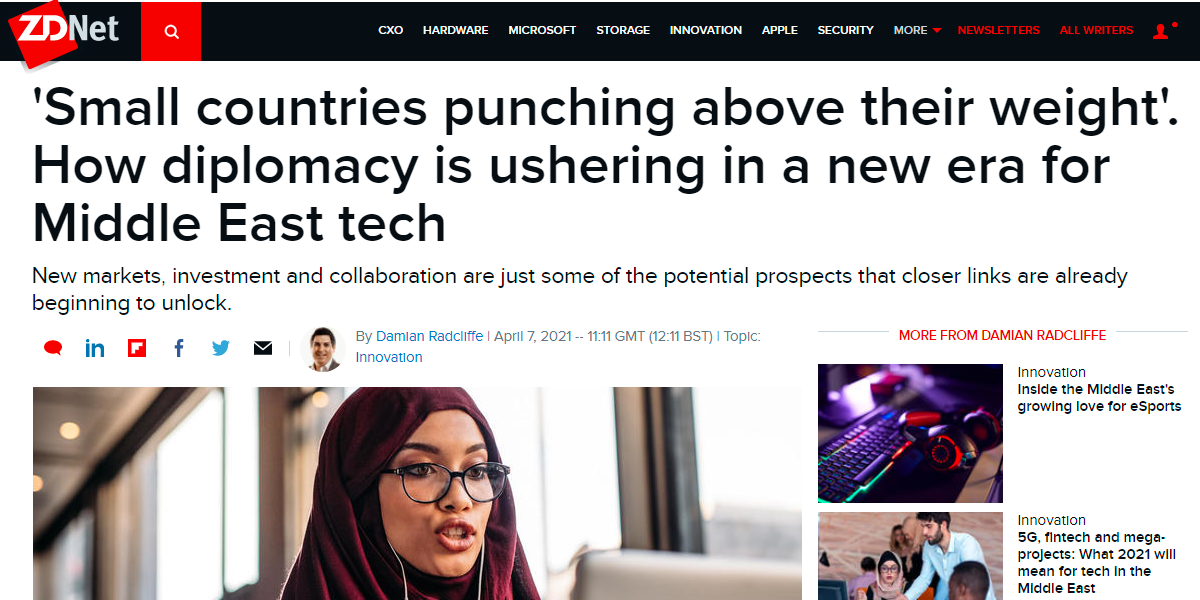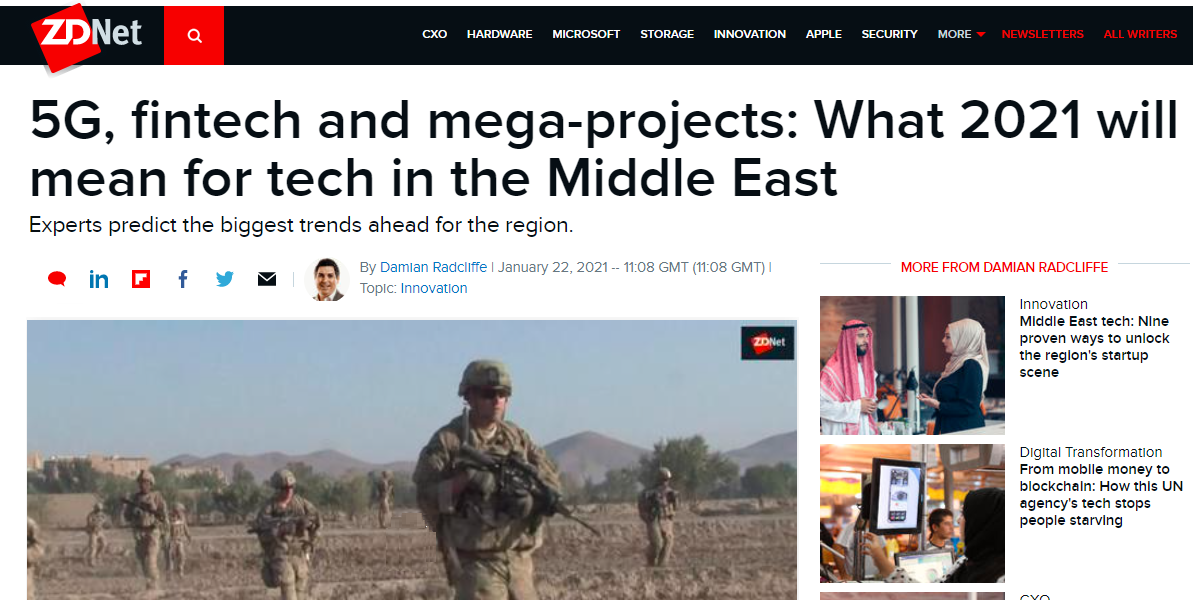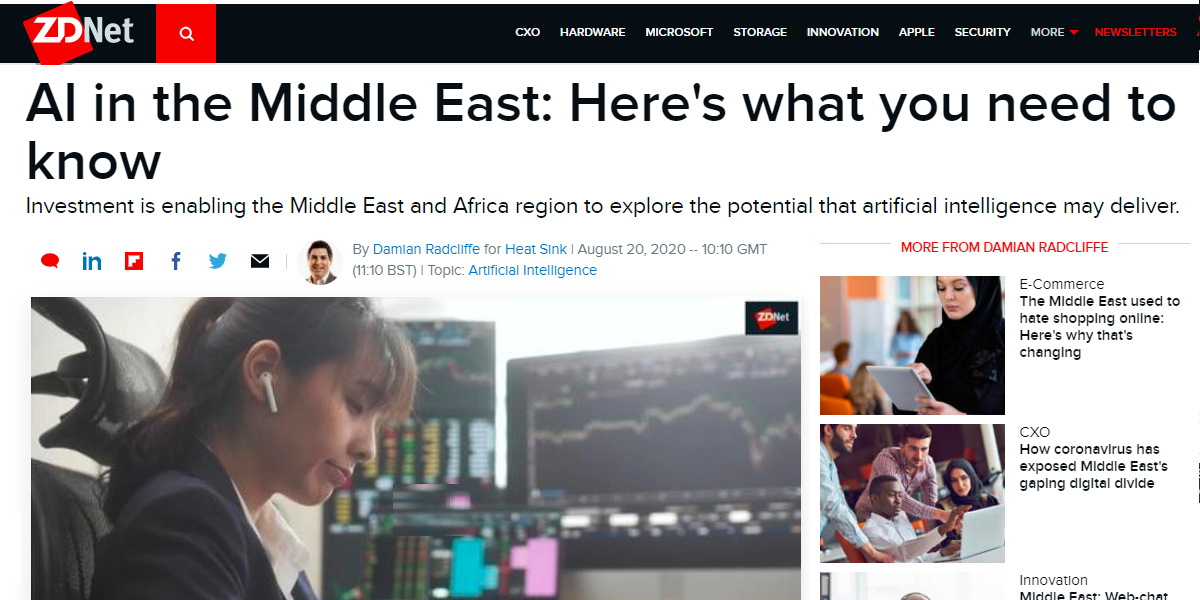GCC tech in 2022: another big year for innovation? Last year saw a long list of government initiatives in the GCC to accelerate digital transformation, encourage innovation in government and create policies to encourage Fourth Industrial Revolution industries. Recently, I was interviewed by ZDNet’s Damian Radcliffe for his article on ‘the biggest trends shaping the digital future of the Middle East‘.
I have no doubt that 2022 will prove to be an exciting year for artificial intelligence and emerging technologies in the Middle East. There have been so many government initiatives, policy moves, proof of concepts and trials across public and private sectors, not to mention investments in new ventures and R&D over the past year, it’s difficult to simply keep track of the developments already in motion! However, I believe we’ll have plenty of new ventures, projects and initiatives to look forward to in 2022 too.
However, beyond the addition of more impressive sounding new government initiatives, I believe that we’re going to see more real evidence of initiatives and programmes set in process during the past 2-3 years bearing fruit. For example, the UAE published its first AI strategy in 2017. Now, nearly five years on, the strategy (which has been updated a number of times) has informed the launch of new initiatives across UAE education, skills development in government, investment, new projects and new organisations, public services and regulation. In Saudi Arabia, the progress made on data and AI at a government level, has paved the way for a new wave of government and private sector initiatives, companies, partnerships and investments.
As Damian’s article helps to illuminate, there are rapid changes taking place across the Middle East’s tech and telecom ecosystems, making the region an exciting place to be at the moment.
You can read Damian’s full article on Tech in 2022 in the Middle East region here.






